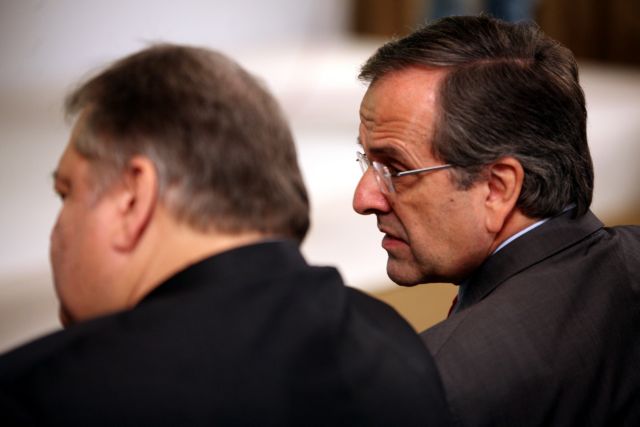With the coalition government and troika seemingly unable to come to an agreement in order for the latest review procedures to conclude, the possibility of extending the current bailout program is increasingly likely.
Brussels has referred to a “technical extension” of the Greek program, which Athens favors over the possibility of a 6- or 12-month extension. The Prime Minister Antonis Samaras and government Vice President Evangelos Venizelos prefer a one-month extension, which would not cause problems to the coalition and allow the completion of the review, which in turn would free-up the final tranche that Greece is to collect.
The Premier appears optimistic that a deal with the creditors and partners is possible and estimates that the compromise will result in a package-deal for the completion of the review and the much-discussed precautionary credit line (ECCL). With the Presidential election procedures likely to begin in January though, there is uncertainty as to the outcome.
As with his speech at the Hellenic-American Chamber of Commerce, Mr. Samaras has hinted that the IMF has ulterior motives for Greece and in an appearance at the City University of London on Wednesday, he commented that “Greece will not become the Achilles’ heal of Europe, but rather a fortress of stability”. A meeting was held on Wednesday between the Prime Minister, the Minister of Finances Gikas Hardouvelis and his deputy Giorgos Mavraganis and the Minister of Labor Yannis Vroutsis, in order to prepare arguments and clarifications for the troika.
The government appears categorically against any measures that may cause political problems (such as increasing VAT on the islands or reforming the national insurance system), however it is open to “low risk” proposals, so as to avoid jeopardizing the credibility of Greek plans. The troika on the other hand wants explicit assurances for the actions that the coalition will take in case of a shortfall in the first half of 2015.





